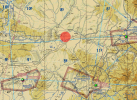Resurrecting this thread to +1 this comment and add my data point. Unfortunately, I had to land with my nose gear retracted a couple nights ago. The mains extended normally, but the nose gear was jammed and all troubleshooting failed. I declared and proceeded to my home base, which happens to be a class C international airport. I'm fine, I didn't have any pax, and the plane is repairable with primarily just mechanical damage from the ensuing prop strike. ATC and emergency personnel were awesome by the way. I can't thank them enough for their help.
However, I awoke the next morning, just 12 hours after the incident, to an email from my friendly neighborhood FSDO inspector. He was requesting multiple documents related to proving my and my airplane's currency "ASAP," as well as a signed statement detailing the incident, my mechanic's contact information, witness contact information, and photos. I was subsequently informed that he intends to inspect my plane personally next week. So I can't really say that declaring didn't result in inconvenience for me. Would it have happened regardless, seeing as I shut down a runway at a major airport for nearly an hour? Maybe. But I found a thread from 2015 talking about how the FAA rarely asks questions after an emergency declaration, and then this thread, and I simply cannot say from my own anecdotal experience that this is always the case.
I'm not worried in the least about the potential for an action against my certificate, because I did nothing wrong. I am actually pretty proud of how I handled the situation. It's more the inconvenience and aggravation. I sure didn't need the extra trip to the hangar to fetch records; the two hours of scanning and paperwork; the calls to friends who happened to be at the airport and saw me land to say that, hey, I had to give your contact info to the FAA; nor the time out of my week next week to meet the FAA guy. This is all on top of what I already have to do for my insurance claim, etc. Will it affect my decision-making in the future as to whether to declare an emergency? I'd like to say no, but let's be real, it'll cross my mind - especially if the meeting next week doesn't go well for some reason.


 I would be shocked if a 709 ride came out of this. We are talking about a mechanical gear failure which was properly and exhaustively troubleshooted. Then, with failure of all emergency procedures, a declared emergency and associated communications, planning, and coordination with ATC and ground emergency personnel recorded on 45+ minutes of ATC tapes, along with what I would consider imho to be a textbook landing for the scenario. What competency exactly would they be concerned about?
I would be shocked if a 709 ride came out of this. We are talking about a mechanical gear failure which was properly and exhaustively troubleshooted. Then, with failure of all emergency procedures, a declared emergency and associated communications, planning, and coordination with ATC and ground emergency personnel recorded on 45+ minutes of ATC tapes, along with what I would consider imho to be a textbook landing for the scenario. What competency exactly would they be concerned about?